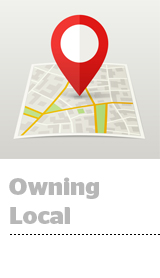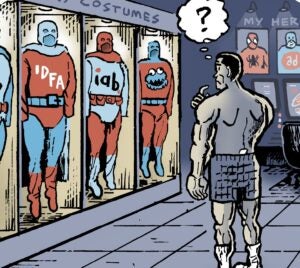 Major ad platforms like Facebook and Google are soaking up the local and small-business market at an eye-popping rate.
Major ad platforms like Facebook and Google are soaking up the local and small-business market at an eye-popping rate.
And it’s taking business away from smaller platforms like Yelp, whose stock has dropped almost 30% after local advertisers moved spend to Facebook and Google.
Facebook, for instance, announced March of last year that it had 3 million businesses advertising on its platform, clearing 4 million later that year and then 5 million last month. That kind of growth is an indicator of the down-market acceleration the company has seen in the past year.
Local advertisers “are fleeing publishers in droves for Facebook and Google, who continue to expand their dominance,” said Brian Handly, founder and CEO of the location targeting agency Reveal Mobile. Newspapers and local broadcasters, Handly said, also are feeling Yelp’s pain. Yelp declined to comment for this article.
Local media has been “under assault” for more than a decade – at least since Craigslist began slurping up the lucrative classifieds business 20 years ago, said Tobias Bennett, who leads the exchange business at the Local Media Consortium.
Digital disruption may not be new, but it also isn’t getting any easier.
Two-thirds of local advertisers “consider themselves to be generally inexperienced when it comes to their ability to confidently and effectively execute the digital ad ecosystem,” Bennett said.
The lean times won’t end anytime soon for newspapers, he said, but apps and ad tech vendors targeting local audiences and SMBs have a “tremendous opportunity” to capitalize on that market’s lack of experience in digital targeting and monetization.
Handly said Facebook and Google have introduced a “tangled web of complexity” to local business advertising.
“Their platforms can be difficult to navigate and optimize,” he said, “which provides an opportunity to (local media networks) and other digital agencies to service SMB accounts.”
The customer review platform Podium, which helps SMBs generate and deploy customer reviews across channels like Google, Facebook, Yelp and Angie’s List, says its business model wouldn’t be possible without those scaled companies to build off of. Services like customer reviews driven by Facebook Messenger or Google Maps mean product development for Podium is increasingly hitched to the two major platforms.
ReachLocal added a “social advertising” category last, and Facebook remains the only media source in the category. (ReachLocal considers YouTube as “video,” and not “social.”)
“We’re integrated with ad exchanges and others in the space, but product investment at the moment is going almost entirely to taking advantage of new things coming out at Google and Facebook,” said Joshua Markham, ReachLocal SVP of digital media products. “Every week they’re coming out with new products, which is time-consuming and difficult to learn, so we want to stay on top of that.”
Does that leave room for other local media players?
Podium founder and CEO Eric Rea said Google’s and Facebook’s dominance in some local niches – like Facebook taking over as a digital storefront for a jewelry store or Google’s dominant position as a search funnel for car dealerships – is a sign of what’s possible for media that does establish a strong advertiser use case. Yelp, for instance, is stronger in certain locations, such as California.
But those small-business niches are vanishing fast under the duopoly.
Yelp’s brutal advertiser exodus came despite better-than-expected user growth and user engagement, a sign that the existence of a stable audience is no safeguard for local media.
Markham said it’s a big opportunity for the agencies and small business vendors to seize “the extreme diversity and high level of churn with local accounts” that Facebook and Google have kicked up in the category.














